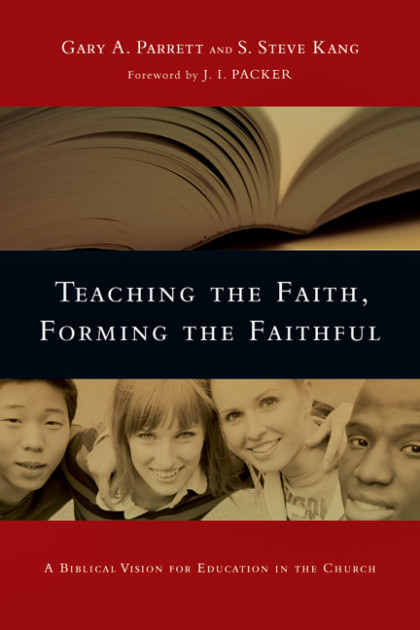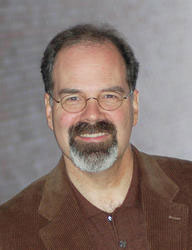As part of his Doctor of Ministry (DMin) in Ministry to Emerging Generations (Gordon-Conwell Theological Seminary), Tom’s written a number of book responses and given several short presentations (personal and group). In this series he not only “shares the wealth,” but also looks forward to your feedback as he refines his project: An argument for vocational discernment for graduate studies in the context of InterVarsity Christian Fellowship (Stay tuned to learn more!). Earlier posts on the program: Ministry to Emerging Generations and The Big Picture of Ministry to Emerging Generations.
Teaching the Faith, Forming the Faithful: A Biblical Vision for Education in the Church

Although Gary A. Parrett and S. Steve Kang’s Teaching the Faith, Forming the Faithful: A Biblical Vision for Education in the Church (Downers Grove, IL: InterVarsity Press, 2009) sat on my “to read” queue since publication, the 401 pages and my focused role in campus ministry served as barriers to reading. Despite the engaging humility of the co-authors, excellent resources (e.g., figures, hymns for contemplation and worship, questions for planning and practice, resources for further study, Scripture quotes, tables) and “take and bake” congregational curriculum, I fear many pastors and “Christian educators” will likewise find Teaching the Faith, Forming the Faithful too lengthy to read and thus miss the rich dialogue between the seven important educational questions.
- Why do we teach?
- What do we teach?
- When do we teach what?
- Whom are we teaching (and what difference does that make)?
- How shall we teach?
- Where shall we teach?
- Who are the teachers? (12. Note: Clarifying questions and chapter references on 128.)
In particular, pastors and “Christian educators” will miss the significant insight of the authors, i.e., “Why? is the proper question with which to begin our exploration of the church’s teaching ministry” (20). I will press the Gordon-Conwell alumni serving on the pastoral staff of the local congregation of which I am a member to interact with the text.*
In the unpacking of the questions, I found it surprising to engage “listening” professors of educational ministries (199-205) with an emphasis on the What of biblically based spiritual development informed by the Why, i.e., telos, shared in a “take and bake” manner (12-13). I have encountered too much “perfect” cookie-cutter material on the one hand and challenging, helpful, never shared before, adaptable material on the other hand. As to the foundation for the endeavor, I rejoiced in uncovering the vision of the chief end of glorifying God and enjoying Him forever (20-21) as the one body of Christ engaged in the ministry of reconciliation (37). Early in the publication, I resonated with the challenging call to begin the why with “teaching out of and unto obedience” rooted in the Great Commission (49-52). I consider this particularly important for the trajectory of teaching unto faith, hope, and love (59-63) in the 2015 shaping of the Emerging Scholars Network’s Scholar’s Compass.
Although I kept being reengaged by the summary figures, tables and chapter material, I wondered if others would find such figures of interest. I imagine they can be valuable resources for educators refining material already on a solid trajectory or developing programming at a new local congregation. But what established congregations will embrace a countercultural shift increasing emphasis on teaching, even catechesis, across the generations? Who will embrace becoming a living Torah (151) or one of the “text-people” (210), teaching “unto worship of the living God” (71) with a passion for the essence and the implications (105) of the Gospel?
As my children mature and I continue to journey with students and faculty in higher education, I believe that parents in dialog with pastors and Christian educators play a key role for young disciples. “Learners tend to retain what they see in our lives far more than what they hear from our lips” (129) and parents are vital (160-168). Local congregations must be new creations (poeima) which are houses of worship guided by the Word and Spirit pointing to the Master Craftsman, never forgetting to encourage and equip members to the global, transgenerational Body of Christ.
To teach is to come alongside another,
In the power of the Spirit and in the company of the faithful,
To seek an encounter together with the Truth:
Taking aim to perceive it more clearly,
Consider it more critically, embrace it more passionately,
Obey it more faithfully, and embody it with greater integrity (277).
Amen! May this be the aim at Elizabethtown Brethren in Christ Church and via InterVarsity’s Emerging Scholars Network. May they both find rich encouragement and insight in these challenging times through Teaching the Faith, Forming the Faithful. May by God’s grace “we believe in the church and believe it to be holy” (431) as we wrestle with church beautiful and the church ugly (433-4).
To God be the glory!
 Note: In January 2016, I had the privilege of interacting with Gary Parrett (Ed.D., Columbia), former professor of educational ministries and worship and chair of the Division of Ministry of the Church at Gordon-Conwell Theological Seminary, as part the second residency. What a powerful life story and gift of leading the worship of the Lord. I look forward to his new book with J. I. Packer. Their focus is catechesis.
Note: In January 2016, I had the privilege of interacting with Gary Parrett (Ed.D., Columbia), former professor of educational ministries and worship and chair of the Division of Ministry of the Church at Gordon-Conwell Theological Seminary, as part the second residency. What a powerful life story and gift of leading the worship of the Lord. I look forward to his new book with J. I. Packer. Their focus is catechesis.
Tom enjoys daily conversations regarding living out the Biblical Story with his wife Theresa and their four girls, around the block, at Elizabethtown Brethren in Christ Church (where he teaches adult electives and co-leads a small group), among healthcare professionals as the Northeast Regional Director for the Christian Medical & Dental Associations (CMDA), and in higher ed as a volunteer with the Emerging Scholars Network (ESN). For a number of years, the Christian Medical Society / CMDA at Penn State College of Medicine was the hub of his ministry with CMDA. Note: Tom served with InterVarsity Christian Fellowship / USA for 20+ years, including 6+ years as the Associate Director of ESN. He has written for the ESN blog from its launch in August 2008. He has studied Biology (B.S.), Higher Education (M.A.), Spiritual Direction (Certificate), Spiritual Formation (M.A.R.), Ministry to Emerging Generations (D.Min.). To God be the glory!

Leave a Reply